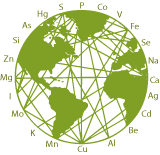What Are Viruses?
Viruses are microscopic infectious agents that contain genetic material and must invade a host in order to multiply. They cannot do so outside a host.
Viruses teeter on the boundaries of what is considered life. While they contain either DNA or RNA, the nucleic acids found in all living organisms, viruses lack the capacity to independently act upon the information contained within those nucleic acids; for this reason, viruses aren't considered "alive."
The primary role of a virus is to deliver its DNA or RNA genome into the host cell so that the genome can be expressed (transcribed and translated) by the host cell, but first, the viruses break into the host cell. Certain viruses will hitch a ride in an insect’s saliva and enter the host’s body after the insect bites. Open wounds can act as gateways for viruses into the body.
In other words, an injured host is easily entered by viruses, and the weaker the host, the more easily viruses replicate and initiate symptoms of certain diseases that are typical for the specific viral strain.
Viruses are known for causing disease, as they've triggered widespread outbreaks of illness and death throughout human history. The COVID-19 pandemic, caused by a coronavirus first identified in late 2019, is an example. This viral strain affects the respiratory system. The Herpes Simplex strain causes lip blisters, the Herpes Zoster causes blisters, itching and pain around the chest and other areas, Epstein-Barr is known to cause extreme fatigue, swollen lymph nodes in the neck and armpit, swollen liver or spleen or both and other symptoms.
Protecting Yourself
What Viruses Dislike
Nutrients such as Lysin, Vitamin C and Zinc help to keep viruses dormant. They can be used for prophylaxis or treatment, but since all nutrients need to be biochemically balanced, it is recommended to take higher doses for short durations only and have a nutritional check-up from time to time.
Lysine is an amino acid that protects against viral diseases such as Herpes Simplex, Epstein Barr and other viral strains.
https://www.ncbi.nlm.nih.gov/pmc/articles/PMC6419779/
In numerous animal studies, vitamin C has prevented and alleviated viral and bacterial infections. In a few dozen placebo-controlled trials with humans, vitamin C has shortened infections caused by respiratory viruses, which indicates that the vitamin can also influence viral infections in humans. In critically ill patients, plasma vitamin C levels are commonly very low. Gram doses of vitamin C are needed to increase the plasma vitamin C levels of critically ill patients to the levels of ordinary healthy people.
For more information on research:
https://www.frontiersin.org/articles/10.3389/fmed.2020.559811/full
Zinc is an essential trace element that is crucial for growth, development, and the maintenance of immune function. Its influence reaches all organs and cell types, representing an integral component of approximately 10% of the human proteome, and encompassing hundreds of key enzymes and transcription factors.
This research article describes the role of zinc in antiviral immunity.
https://academic.oup.com/advances/article/10/4/696/5476413
Do Viruses Disappear?
Since viruses aren’t technically living, can they simply disappear?
Antiviral drugs, even some nutrients, might weaken a virus enough to reduce the amount that is circulating within the individual. There are clinical trials in the US and Japan that have found that the mutation-inducing drug "favipiravir" is effective against the flu strain H1N1. Virologist Elena Govorkova at St Jude Children’s Hospital in Memphis, Tennessee, and her team have shown that the drug can make the flu virus less infectious, hence the virus problem is less or gone and tests are not indicative of a viral infection. But has the virus disappeared? No one can say for sure.
Certain virus strains, like the types of Covid-19 – of which there are already at least six – might amass enough mutations that are harmful to themselves so that they apparently disappear. In India, there’s some evidence that the virus is mutating at a staggering pace, and eradicate itself.
The problem is this: Viruses can lurk in people, even materials that are stored in freezers, they can hide in wildlife and domestic animals. It is impossible to say if a virus has gone for sure. In fact, there is an ongoing debate about whether viruses can become extinct.
Protecting Yourself
What Viruses Like
Viruses like a stressed host, because any type of stress weakens the host and this is the reason why stressed patients easily develop the itching lip blisters, typical of a Herpes Simplex invasion, or experience Epstein-Barr symptoms such as extreme fatique.
Cancer patients are easy targets for a viral invasion. Research indicates that cancer cells accumulate more toxic metals than healthy cells. This suggests that viruses prefer a toxic environment.
A toxic environment represents a weak host. It seems logical to 'detox' the environment and thus change the weak to a strong host.
Check our information on CANCER.
Also check
https://www.ncbi.nlm.nih.gov/pmc/articles/PMC4699750/
https://pubmed.ncbi.nlm.nih.gov/23338949/
https://www.academia.edu/32146295/Transition_metals_and_breast_cancer
